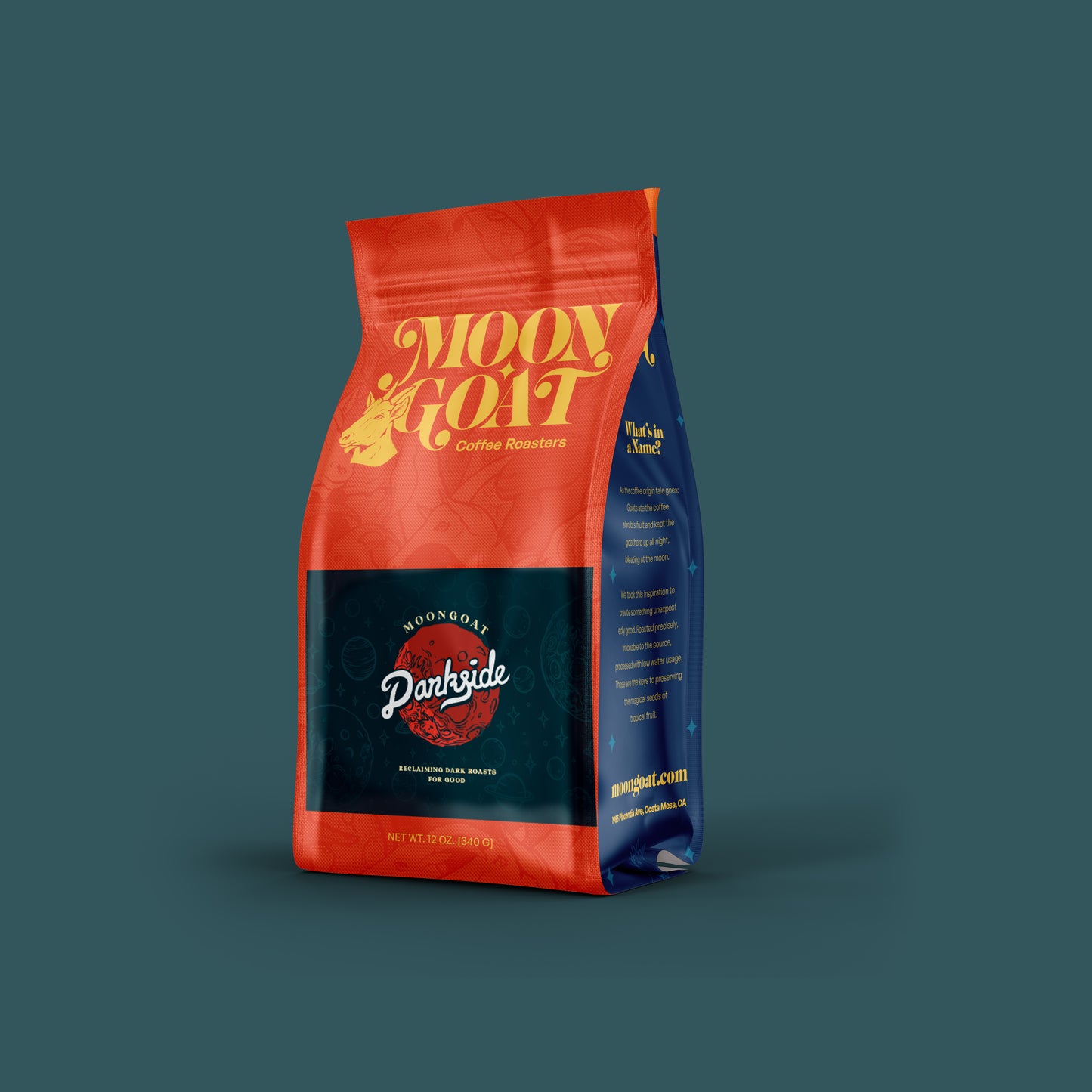TLDR: MoonGoat Coffee is proud to partner with James Hoffmann's The Decaf Project, bringing you the first widespread tasting of high-quality decaf coffees that highlights different decaffeination methods side by side. Taste the difference and explore decaf in a new way—now available at MoonGoat (Online or In-Store)!
Decaf coffee is often overlooked by coffee enthusiasts, but at Moongoat, we think it deserves just as much attention as its caffeinated counterpart. That’s why we’re thrilled to be part of James Hoffmann's The Decaf Project—a groundbreaking global initiative that takes decaf out of the shadows and into the spotlight. This project allows you to compare three popular decaffeination methods against a fully caffeinated control, giving you the opportunity to taste and appreciate the differences between each process.
The Decaf Project by James Hoffmann: A Game Changer in Specialty Coffee
James Hoffmann, one of the world’s most renowned coffee experts, started The Decaf Project to change the way we perceive and enjoy decaf. For too long, decaf has been treated as an afterthought, with few options for high-quality, full-flavored decaf coffee. This project aims to challenge those misconceptions by putting decaf through the same rigorous tastings and experiments as specialty coffee.
We at Moongoat are excited to be roasting and selling this unique set of coffees, and we’re offering a bundle that lets you experience the nuances of three different decaffeination processes: Ethyl Acetate (EA), CO₂ Subcritical, and Swiss Water® Process. These coffees are sourced from La Virgen Guadalupe in Huila, Colombia, a region known for its rich history, fertile soil, and dedication to quality coffee production.
The Coffee: La Virgen Guadalupe, Colombia
The coffee for The Decaf Project comes from La Virgen Guadalupe, a picturesque municipality in Huila, Colombia. Founded in 1715 and rebuilt after a devastating earthquake in 1827, Guadalupe has always been resilient—much like the coffee it produces. Grown at altitudes between 1,400 and 2,000 meters, this washed-process Caturra varietal benefits from cool weather, fertile soils, and sustainable farming practices.
Guadalupe's farmers continue to innovate, adopting new varieties and processes to improve quality while honoring the traditions that have been passed down through generations. This commitment to quality makes their coffee an excellent choice for this decaf exploration.
Decaffeination Methods: Taste the Difference
The core of The Decaf Project lies in understanding the different methods of decaffeination. Each process is designed to remove caffeine while preserving as much flavor as possible. Here’s a closer look at each method featured in the project:
1. Ethyl Acetate (EA) Decaffeination
Ethyl Acetate, often naturally derived from sugarcane, is used to remove caffeine from green coffee beans. The beans are first steamed to open their pores, allowing the ethyl acetate solution to selectively extract caffeine. Finally, the beans are steamed again to remove any residual ethyl acetate.
-
Key Features: EA is naturally found in coffee, fruits, and sugar cane. This method is often called “sugarcane decaf” because of its natural association. It’s a selective process that targets caffeine effectively without compromising the coffee's inherent flavors.
2. CO₂ Subcritical Decaffeination
The CO₂ Subcritical process, developed in the late 1980s, uses pressurized liquid carbon dioxide to extract caffeine from moistened green coffee beans. This gentle, organic-certified process works at relatively low temperatures, which helps preserve the complex flavor compounds within the coffee.
-
Key Features: This method is all-organic, using natural carbon dioxide in a way that keeps the coffee’s flavor intact. It’s particularly known for being gentle on the coffee while efficiently removing caffeine.
3. Swiss Water® Process
The Swiss Water® Process is a completely chemical-free method of decaffeination that uses only water, temperature, and time to remove caffeine. Green Coffee Extract (GCE) is circulated around the beans to pull out the caffeine while leaving the flavor compounds untouched.
-
Key Features: This method retains the full flavor of the coffee without using any chemicals, making it a popular choice for those looking for a natural approach to decaffeination.
Why The Decaf Project Matters
The Decaf Project is a game changer for decaf enthusiasts and specialty coffee lovers alike. By offering a side-by-side comparison of three distinct decaffeination processes, it provides an unparalleled opportunity to understand how each method affects the flavor profile of the coffee. Whether you're already a decaf drinker or someone who's curious about trying high-quality decaf, this project allows you to taste the differences for yourself.
For too long, decaf has been seen as lesser than fully caffeinated coffee. With The Decaf Project, James Hoffmann and Moongoat Coffee are challenging this perception, showing that decaf can be every bit as flavorful, complex, and enjoyable as its caffeinated counterpart.
Moongoat and The Decaf Project: How to Join the Tasting
We’re excited to share The Decaf Project with our community. You can join us virtually or come to 1975 by Moongoat for an in-person tasting. The tasting includes four different versions of the same coffee: three decaffeinated by the methods above, and one fully caffeinated for comparison.
The bundle includes:
-
La Virgen Guadalupe, Colombia decaffeinated via EA, CO₂ Subcritical, and Swiss Water® Process, plus the fully caffeinated version.
-
An opportunity to explore the distinct flavor differences that each decaffeination method imparts.
Whether you’re joining from home or coming in for the tasting, you’ll get a unique chance to explore the often overlooked world of decaf in a new and exciting way.
How to Purchase The Decaf Project Bundle
Ready to experience the evolution of decaf? The Decaf Project bundle is available now through Moongoat Coffee. You’ll receive a 12 oz bag of each version—Ethyl Acetate, CO₂ Subcritical, Swiss Water® Process, and the fully caffeinated control. Taste each one and see how these methods shape the coffee in different ways.
By roasting and selling The Decaf Project, Moongoat aims to push the boundaries of what specialty coffee can be. We’re committed to quality, transparency, and educating our community—because great coffee deserves great understanding.
Conclusion: Rediscover Decaf with Moongoat
Decaf doesn’t have to mean compromise. With The Decaf Project, we’re setting out to prove that high-quality decaf coffee can be just as complex and enjoyable as any other specialty coffee. Whether you prefer a chemical-free approach like Swiss Water® or are curious about the sugarcane-derived EA method, there’s something in this project for everyone.
Visit us at 1975 by Moongoat or check out our online store to get your hands on The Decaf Project bundle. We also invite you to our live tasting event on December 15th at 7 AM PST at 1975 by Moongoat, where you can experience these decaf coffees firsthand. Join us in celebrating the art of decaf—one cup at a time.






